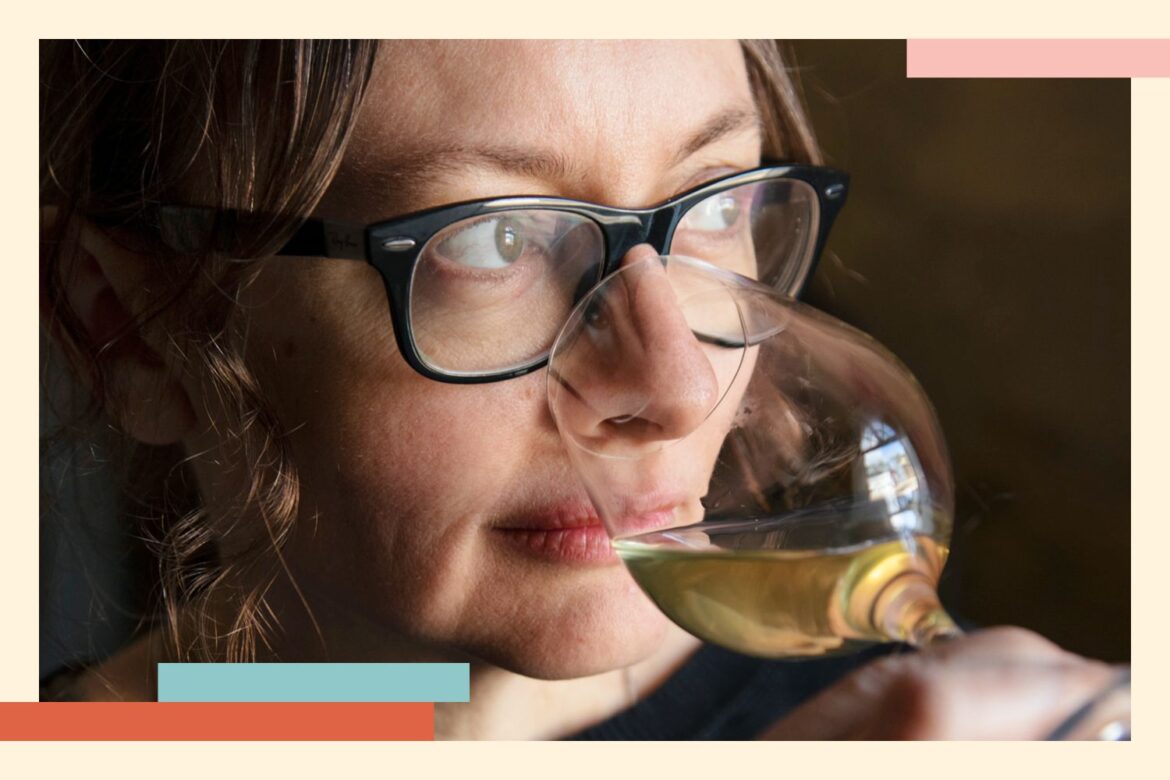On September 16, Pascaline Lepeltier — Master Sommelier, co-owner of New York City’s Chambers restaurant, author, educator, mentor, and, as one fellow wine professional puts it, “female powerhouse, badass of the wine world” — became France’s national representative for the 2026 Best Sommelier of the World competition, a major honor. But to Lepeltier, the acclaim is never the point.
“All my work right now has been aimed at this competition, but it’s really work that’s geared toward rethinking wine tasting overall: to push it toward a kind of mindfulness, to turn that mirror toward yourself.”
Cedric Angeles
To that end, Lepeltier together with the Wine Scholar Guild is creating an entirely new wine diploma program, which will launch next year. “There are so many great wine projects happening, but the big work needs to come back to education and tasting,” she says. “It’s extremely important, teaching and mentoring as much as I can and as much as I have something to say,”
And, to paraphrase the old E.F. Hutton financial services commercials, when Pascaline Lepeltier talks, wine people listen.
Lepeltier has been at the forefront of recognition for the natural wine movement; she championed Chenin Blanc when it was largely an afterthought in the U.S., and her 2024 book, One Thousand Vines: A New Way to Understand Wine, vaulted into instant-classic status among wine professionals almost overnight.
Chenin is now the hottest grape around, at least in sommelier terms, and one could argue that Lepeltier’s influence has had a lot to do with that. “Chenin is really such a chameleon grape,” she says, adding that the reborn interest she sees in it is heartening in a time when the wine business seems battered on a number of sides. “It’s just great to see, and it’s another part of the conversation. Everything that can make people curious about wine and interested in it makes me happy.”
Of course, Lepeltier also makes her own wine — hardly a surprise, given how many projects she has going at any time. “Some friends of mine in the Loire make a barrel, and we bottle that,” she says. “It’s a house wine for me and my friends. For the friends of Chenin.”
The other topic that occupies Lepeltier now is where wine is headed. “It’s not normal to see so many temperance movements pushing so hard against alcohol right now. What’s behind that? It’s very strange,” she says. “Compared to microplastics, or water pollution, why is alcohol so front and center?
“For me, it’s extremely important in an era where we say that every drop of alcohol is dangerous to realize that there is something in this type of beverage, if you appreciate it in a way that’s respectful, that can lead to mindfulness, to being better, to feeling better. How do we teach that?” she asks. The question rebounds back to the course of wine study she’s creating with the Wine Scholar Guild. “I think the future of wine will belong to changing the way we teach in this industry,” she says. “The system we have now doesn’t help people distinguish between wine and beverages that aren’t really connected to a natural cycle of production.”
She pauses for a moment, then asks, as much to herself as to anyone else: “How do we preserve this extraordinary product of human history? What is this power that wine has that no other beverage has? How do we transmit that idea, of the power wine has to make us feel, to connect with ourselves and just as easily to connect with a perfect stranger?”
One way, clearly, is by being Pascaline Lepeltier.
Food & Wine’s Drinks Visionaries program showcases the people who have changed how we drink, from bartenders and restaurant owners to distillers, winemakers, and beyond. Discover the rest of 2025’s honorees here.


Dining and Cooking